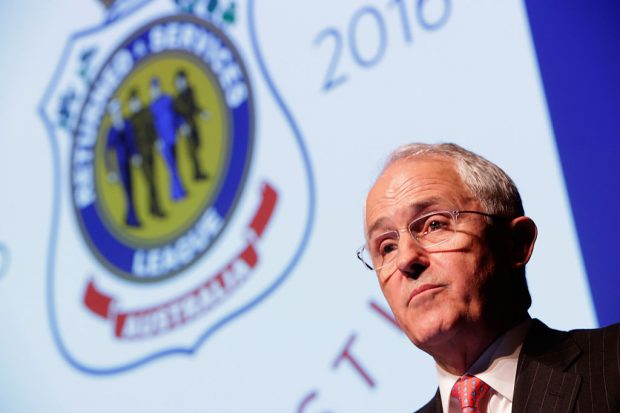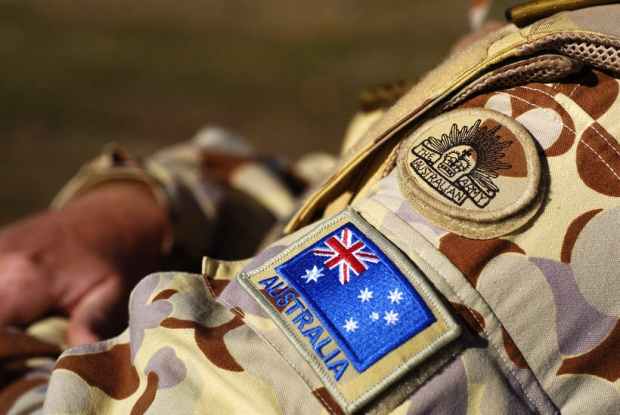 Australian military-political intrigue claimed its first victim on January 26, 1808 when the NSW Rum Corps arrested Governor William Bligh.
Australian military-political intrigue claimed its first victim on January 26, 1808 when the NSW Rum Corps arrested Governor William Bligh.
The colony’s fourth governor, naval Captain Bligh was no stranger to mutiny.
His transgression in this instance was to attempt to rein in the Rum Corps’ corrupt excesses, the officers having captured the fledgeling colony’s economy by establishing rum as a currency.
Following two years of messy intrigue, soldier-governor Lachlan Macquarie assumed control on January 1, 1810.
A similar scenario is unfolding as disaffected younger military veterans manoeuvre to remove the Returned and Services League of Australia ageing leadership.
In its centenary year, the RSL is facing its greatest crisis ever as it struggles to retain relevance.
It’s a battle between generations: entrenched older veterans with a sense of entitlement and privilege versus younger veterans frustrated by a sense of organisational irrelevance and inaction.
It’s about power, prestige and public profile.
It’s also about access to and control of vast funds and income generating investments.
It’s a battle that sadly has been fought several times in the RSL’s first century, but the rules of engagement have changed.
The enduring adage that old age and cunning will always overcome youth and inexperience may no longer apply.
Older veterans who have clung tenaciously to power may discover that technology, determination and political rat cunning will finally wrest power from them.
Younger veterans feel alienated by the nation’s peak veterans’ advocacy body, arguing it no longer honours its objectives to represent all veterans’ interests.
The young turks have had enough and are taking matters into their own hands.
They act amid claims that some current executives, particularly in NSW, have been paying themselves generous allowances and consultancy fees from RSL funds while supposedly working voluntarily.
Leading the charge for change is Sydney academic and former cavalryman James Brown, a veteran of war service in Iraq and Afghanistan and in the Solomon Islands. Brown has worked for two strategic think tanks, The Lowy Institute and Sydney University’s US Study Centre.
He is also vice-president of North Bondi RSL.
Brown’s political manifesto, Anzac’s Long Shadow, questioned RSL values and priorities in its centenary year, as federal and state governments spend millions commemorating events during World War I.
He makes valid points but like many fails to understand that despite its national identity, the RSL model varies from state to state.
Most Australians only see the RSL through its pokies, pots and parmie clubs, but its prime purpose is veterans’ welfare.
That was the vision of its founders, who created sub-branches in the communities from which they were recruited.
Having fought together in units with regional allegiances, their RSL sub-branches reflected those continuing bonds.
As the organisation grew it developed local, district and state identities before unifying under a national brand.
The social clubs the old diggers established generated incomes to fund their welfare work.
In NSW, pokies historically generated wealth beyond the old diggers’ imagination.
In Queensland, the RSL Art Union has done likewise.
Other less visionary states without access to similar fundraising schemes have languished by comparison.
Many wealthy clubs have forgotten their real purpose and their only remaining relationship with their sub-branch is the shared RSL name.
Old-fashioned political bastardry is more at home in party backrooms than RSL bars, but it seems to be the weapon of choice of those now advocating long overdue generational change.
Allegations of excessive, personal financial indulgence have been levelled at some in the current leadership through rumour, carefully managed media leaks, and a concerted social media campaign.
That caused former NSW and recently elected national president, Vietnam veteran Rod White to step aside last week.
There is no argument that the organisation formed a century ago is now a very different beast in need of new ideas and fresh leadership to take it forward.
That has to be generational change, but is James Brown the person to do that?
His strategy appears to be to criticise the organisation from within, remove its leadership, and then rebuild it to his own design.
The old diggers clinging to power may yet discover it will effect the generational change contemporary veterans crave.
It’s the same strategy as that employed by Brown’s father-in-law, Prime Minister Malcolm Bligh Turnbull.
Ross Eastgate is a military historian, writer and columnist with The Townsville Bulletin. He is a graduate of the Royal Military College Duntroon, a veteran of service in PNG, the Middle East and East Timor, and a long-term RSL member.
Got something to add? Join the discussion and comment below.
Get 10 issues for just $10
Subscribe to The Spectator Australia today for the next 10 magazine issues, plus full online access, for just $10.

























Comments
Don't miss out
Join the conversation with other Spectator Australia readers. Subscribe to leave a comment.
SUBSCRIBEAlready a subscriber? Log in